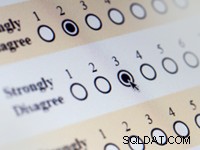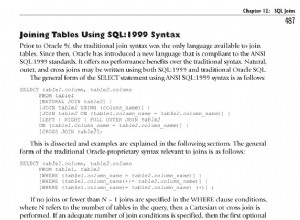Quando è passata una query UPDATE, mysql_query() restituisce il valore booleano TRUE in caso di successo e FALSE in caso di errore, mentre mysql_num_rows() accetta solo una risorsa del set di risultati come argomento. Per determinare quante righe ha interessato la query UPDATE, chiama mysql_affected_rows() con la risorsa di connessione come argomento.
Non sta causando il problema che stai riscontrando in questo momento, ma ti consigliamo di aggiungere or die(mysql_error()) al tuo mysql_query() chiamate, al fine di rilevare eventuali errori MySQL che si verificano. Ti consigliamo ancora di abbandonare mysql_* funziona interamente a favore dell'estensione PHP PDO, come raccomandato nel manuale PHP, e che in realtà non comporta un sovraccarico cognitivo molto maggiore in cambio dei vasti vantaggi che offre in termini di capacità e sicurezza.
A parte questo, ecco come cambierei il tuo codice in modo che si comporti più come quello che hai in mente:
<?php
// obtain a database connection
$dbConn = mysql_connect($serverName, $user_name, $password)
or die("Cannot connect to server: " . mysql_error() . "<br />\n");
// mysql error number rarely adds enough information to be worth including
// select the database
mysql_select_db($db_name, $dbConn)
or die("Couldn't select $db_name: " . mysql_error() . "<br />\n");
// obtain escaped versions of query data for inclusion in update query
// it is imperative to use mysql_real_escape_string() or equivalent if you're
// going to use mysql_* functions instead of the far preferable PDO
// prepared statements; if you don't escape your data, you leave open the
// possibility of SQL injection, which someone will certainly soon use to
// screw up your website horribly
$id = mysql_real_escape_string($_GET['id']);
$additional_notes = mysql_real_escape_string($_GET['additional_notes']);
// assemble query to pass to mysql_query()
// no need for parentheses around the string; in fact i'm surprised that
// didn't result in a parse error
// also FYI re backticks, MySQL uses them to denote literal database/table/
// column names -- they're optional unless required to disambiguate between
// an entity name and a reserved word. for example, you can create a table
// containing a column named 'key', which is a MySQL reserved word, but you
// thereafter must refer to that column as `key`, with backticks, in any
// queries, to hint to MySQL's parser that you mean the column by that name
// and not the reserved word; otherwise, it's a parse error.
$sql = "UPDATE `rmstable2` SET `additional_notes` = '$additional_notes' WHERE `id` = '$id'";
// actually run the query
// this being an UPDATE query, the result is boolean and offers no
// additional useful information, so you need not capture it in a variable;
// the 'or die' clause will fire if it's false, and if it's true, you'll
// use mysql_affected_rows() to get the additional info you need.
mysql_query($sql)
or die(mysql_error());
// if the query failed, the script die()d on the previous line and didn't
// get here; if it did get here, you know the query succeeded
$resultcount = mysql_affected_rows($dbConn);
// this is technically correct but semantically odd; since you already included
// the 'additional_notes' value in the previous UPDATE query, and since
// that query certainly succeeded if we're evaluating this code at all,
// why run the same query again?
if ($resultcount == 1) {
mysql_query("UPDATE `rmstable2` SET `additional_notes` = '$additional_notes' WHERE `id` = '$id'")
or die(mysql_error());
}
// again, the 'or die' clauses mean that we can only have reached this point
// if the queries succeeded, so there's no need for an if() test here
echo "Update Successful!";
echo '<h3>Your case has been updated.</h3>';
// note the backslashes before the embedded double quotes; single quotes in
// tag attributes are technically invalid but most browsers will accept them,
// but you can use double quotes within a double-quoted string if you precede
// the embedded quotes with backslashes (called "escaping") to indicate that
// they're not to be taken as the end of the string
// (i.e., "\"\"" == '""')
echo "To see your changes please click <a href=\"/fullcase.php?id=$id\">here</a></b>";
?>




